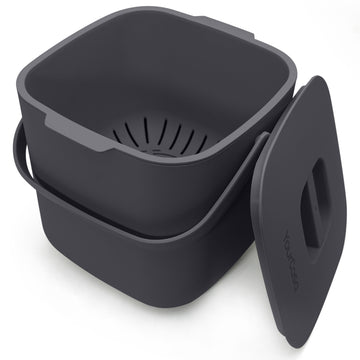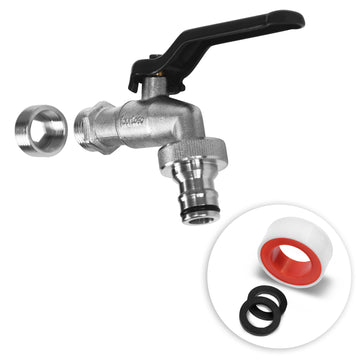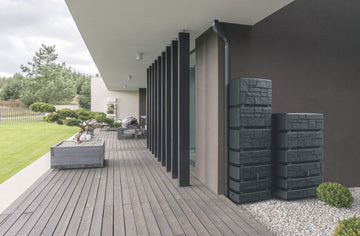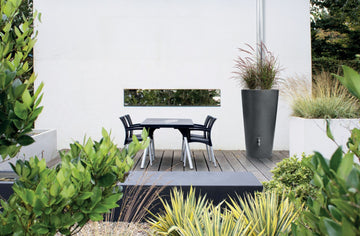Sustainable gardening: Composting as the secret to a healthy garden
by Robert Zielinski on Mar 25, 2024
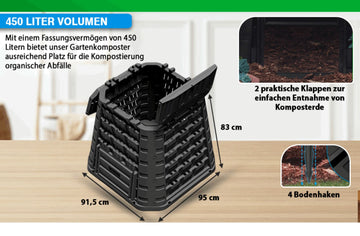
Composting is one of the most important pieces of the puzzle to keep your organic garden sustainable, healthy and happy - and it's not difficult at all. With the help of a compost bin, you can transform kitchen and garden waste into valuable, rich and natural fertilizer that promotes soil fertility and supports plant growth.
How does composting help with sustainable gardening? Composting supports sustainable gardening by turning organic waste into nutrient-rich fertilizer that improves soil. This promotes soil health, improves water retention, and stimulates plant growth naturally without relying on chemical fertilizers. By reducing kitchen and garden waste, composting helps reduce waste and reduces the need for artificial fertilizers.
Why composting promotes sustainable gardening
Composting is good for the garden and good for the environment - that's no secret. Find out here why this is the case and how exactly your natural garden can benefit.
Reducing the ecological footprint through composting
Firstly, composting is a useful way to make use of garden and kitchen waste that would otherwise simply end up in the trash. This relieves the burden on landfills and reduces the production of environmentally harmful methane gas - and thus reduces your ecological footprint. In addition, by using compost in your garden you reduce the amount of fertilizer you need. Fertilizer is often very energy-intensive to produce and is associated with the production of harmful substances such as phosphorus or nitrogen.
How compost improves soil quality and fertility
Compost improves soil structure, promotes water retention and stimulates the growth of beneficial microorganisms . By enriching the soil with organic nutrients, plant health is promoted and, as mentioned above, the need for chemical fertilizers is reduced. This creates fertile soil that forms the basis for vital plant growth and a bountiful harvest.
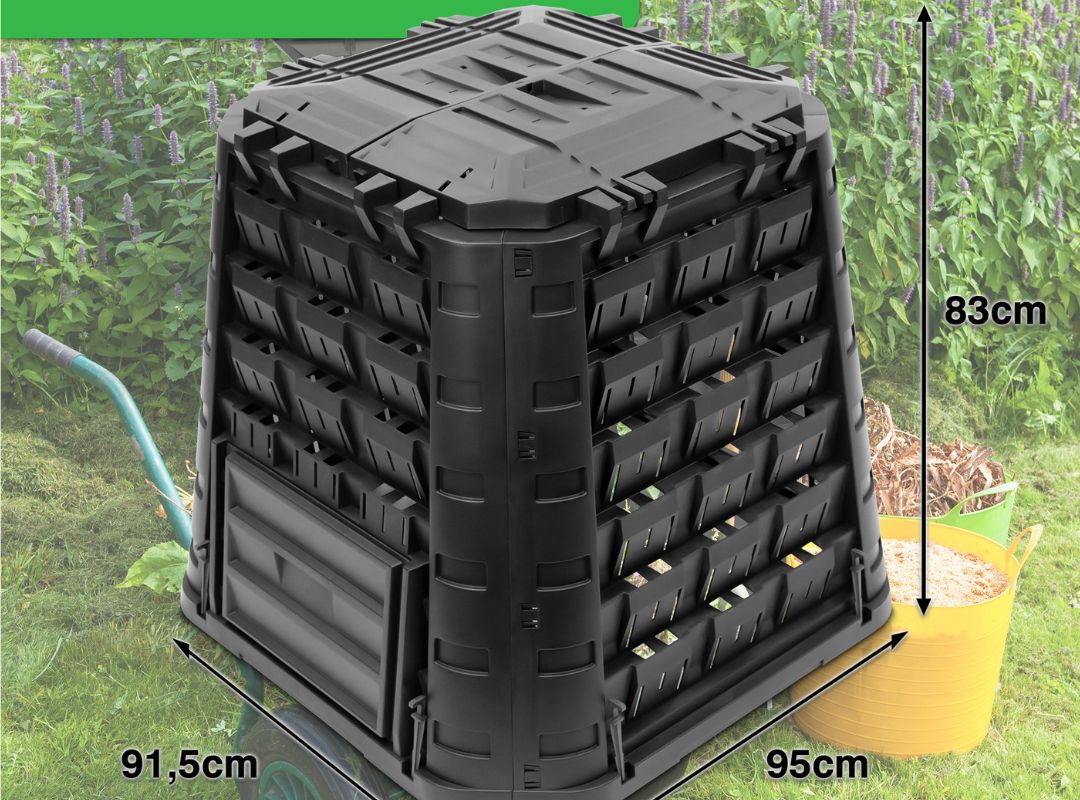
Steps to successful composting
Composting is anything but difficult. To make sure nothing goes wrong, you should take a look at our tips and best practices .
Starting composting: what you need to know
Before you can even start composting in your garden, you need to find a suitable place for your compost - ideally shady and directly on the ground. In general, it is good to know that you will later need to create a balance between green (nitrogen-rich) and brown (carbon-rich) materials to promote effective decomposition. Kitchen scraps, garden waste, coffee grounds and eggshells are great, while meat, fish, dairy products and diseased plants should be avoided.
A proper compost bin can facilitate the process by providing ideal ventilation and moisture control , thereby accelerating the decomposition processes in your waste.
To help you put the right materials on your compost, here is a small overview in table form:
| material | Advantages | Disadvantages |
| Vegetable leftovers | Rich in nitrogen | Can attract vermin |
| Fruit bowls | Fast decomposition process | Can attract vermin |
| Coffee grounds | Rich in nitrogen, improves soil structure | Can acidify the soil |
| Eggshells | Rich in calcium, promotes plant growth | Slow decomposition process |
| Grass clippings | Good source of nitrogen | Can overheat the compost if excessive |
| leaves | Rich in carbon, promotes ventilation | Slow decomposition process |
| Small branches | Promotes aeration and loosens the soil | Very slow decomposition process |
| Meat leftovers | Could provide nutrients | Attracts pests, risk of disease transmission |
| Dairy products | Could provide nutrients | Attracts pests, risk of odor formation |
| Sick plants | Potentially nutrient-rich | Risk of spreading diseases |
Building and maintaining a compost: best practices
So now you know what you basically need for composting. So that you can get started, we have a step-by-step guide for you here.
- Choose a location : A shady, slightly moist spot is ideal.
- Create balance : Combine green and brown materials in a 1:2 ratio.
- Set up a compost container : A container holds the compost together and accelerates decomposition.
- Layer materials : Start with a layer of coarse materials such as branches and twigs of native wood to promote ventilation, followed by alternating layers of green and brown materials.
- Control moisture : Compost should be moist but not wet. Add water if necessary or dry brown materials if there is too much moisture.
- Mix regularly : Mixing supplies oxygen and promotes even decomposition.
- Wait for it to mature : The compost is ready when it looks dark and crumbly and smells earthy. This can take several months to a year.
Composting for small gardens and balconies
Composting can also be successfully implemented in small gardens or on balconies . Special compost bins or worm boxes are ideal for confined spaces and enable odor-free decomposition of kitchen waste into nutrient-rich fertilizer These compact systems fit into even the smallest corner.
And by the way: At YourCasa There are practical compost bins for the kitchen . The 4l compost bin You can also use it if you have a small garden where a largergarden composter is there is no space. You can also dispose of your waste directly in the kitchen and do not have to take it out into the garden.
Success stories: Sustainable gardening with compost
Composting doesn't just sound good in theory, it also has real practical benefits . There are many successful examples to show this. Just ask one of your neighbors who has a compost heap in their garden.
The great thing about composting is that it can be done almost anywhere . This is shown by the example of a kindergarten in Weissach, where the kids built their own compost heap - and later also built a raised bed in which they planted all kinds of plants.
There are also many successful examples in big cities. If you don't have a garden or allotment right where you live, you can still compost on the balcony or in the kitchen. This is also a small contribution to environmental protection and more sustainability in everyday life.
Conclusion: Composting is worth it
So: If you have a garden or just a few plants in flowerpots on your balcony, you should definitely start composting now . Sustainable gardening not only ensures healthy soil, but also a better ecological footprint.
If you still have doubts, just think about the money you invest in expensive fertilizers. Instead, you could look after your garden in a natural and inexpensive way .
At YourCasa you can get practical compost containers, both for the garden and for the kitchen. With these you are well equipped to care for your sustainable garden. In our article "Composting for beginners: step-by-step to your own compost" you will find further tips on setting up and caring for your own composter.
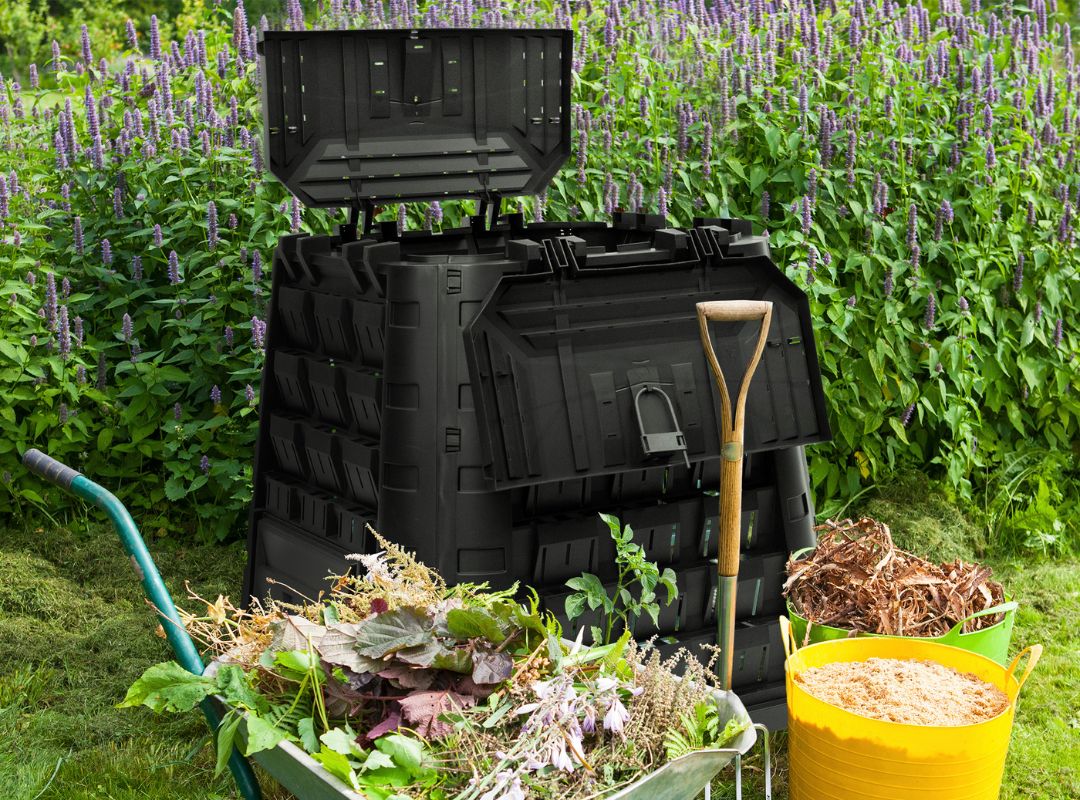

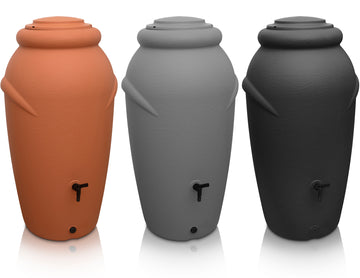
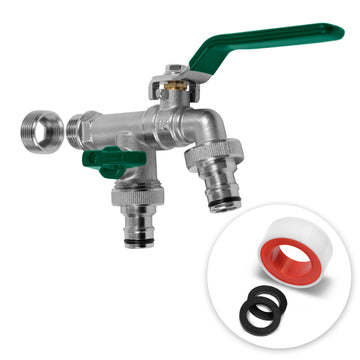
![Drei hohe YourCasa Regentonne 240 Liter [Wellen-Design] - Frostsicher & UV-beständige Gartentöpfe in den Farben Schwarz, Grau und Terrakotta, jeweils mit Drainagesystem für nachhaltige Bewässerung.](http://yourcasa.de/cdn/shop/files/ohnelogo_b8aeecac-557e-4106-a999-e77dcd160209.jpg?v=1707130230&width=360)
